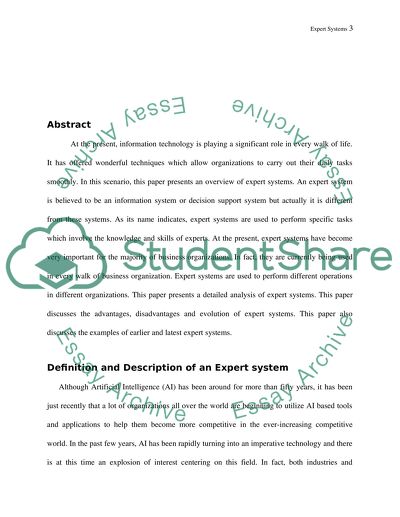Cite this document
(“Expert Systems Essay Example | Topics and Well Written Essays - 2750 words”, n.d.)
Retrieved from https://studentshare.org/information-technology/1482003-expert-systems
Retrieved from https://studentshare.org/information-technology/1482003-expert-systems
(Expert Systems Essay Example | Topics and Well Written Essays - 2750 Words)
https://studentshare.org/information-technology/1482003-expert-systems.
https://studentshare.org/information-technology/1482003-expert-systems.
“Expert Systems Essay Example | Topics and Well Written Essays - 2750 Words”, n.d. https://studentshare.org/information-technology/1482003-expert-systems.


